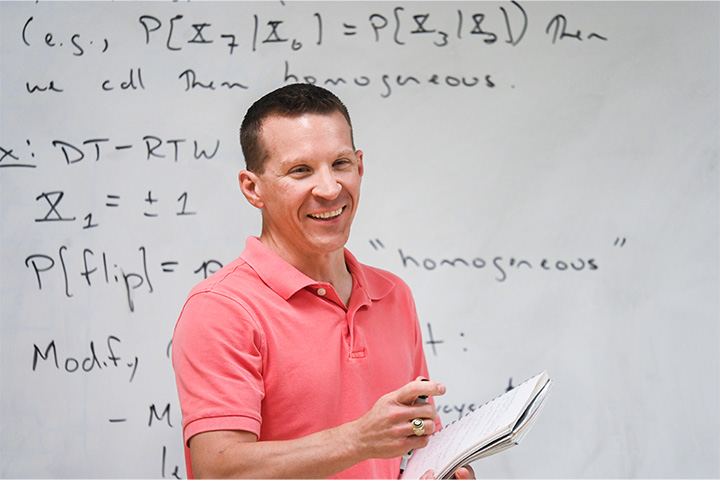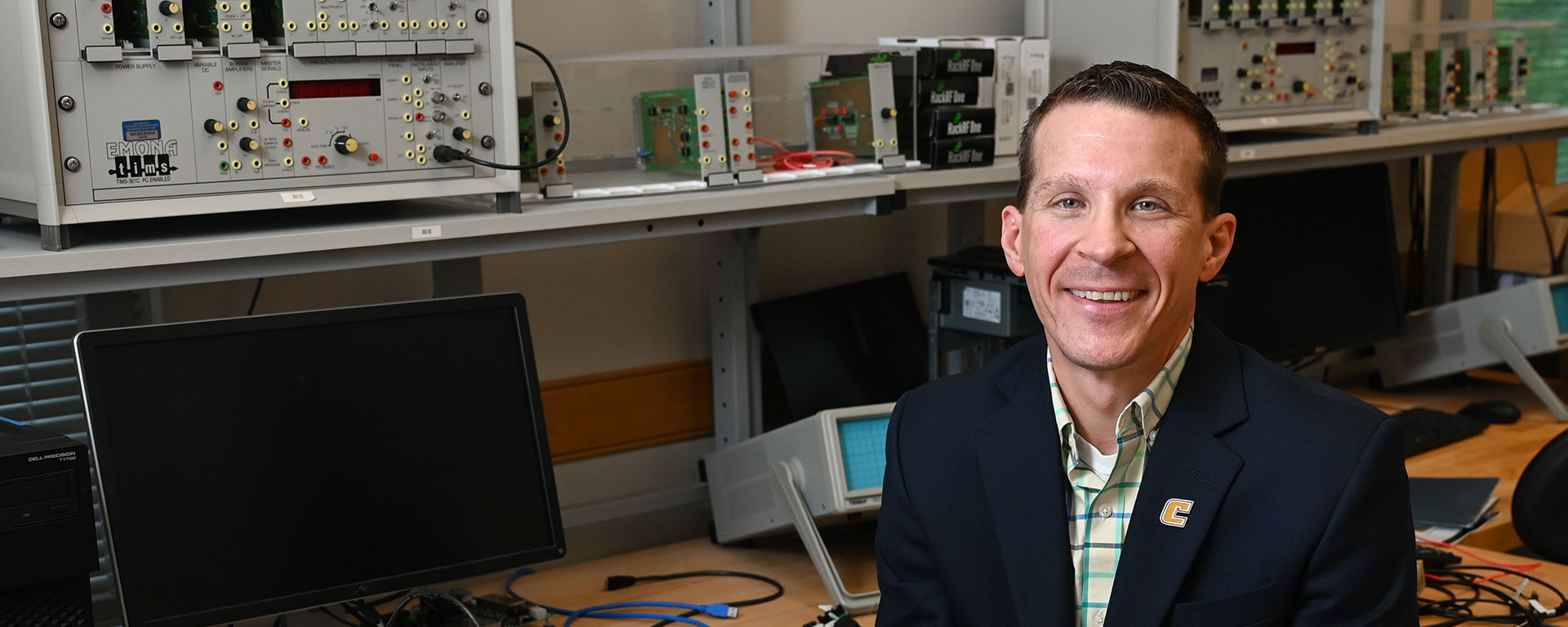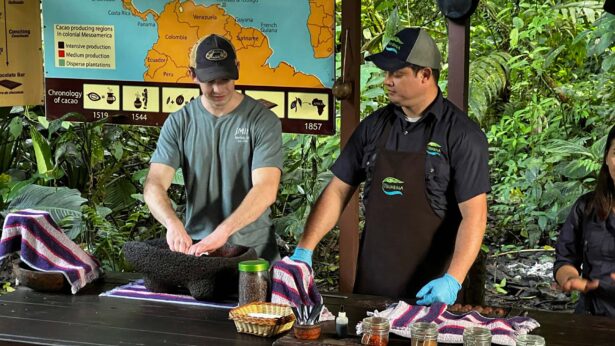Students first. Students last. Students always. It’s a core value that Donald Reising, the University of Chattanooga Foundation Associate Professor of Electrical Engineering at UT Chattanooga, says was instilled in him during his time in the military—and one that he brings to his work in higher education.
“We’d always say, ‘Soldiers first. Soldiers last. Soldiers always.’ It was this idea that the way you do things should always be with the soldier in mind,” says Reising, who served in the U.S. Army from 1995 to 1999 and the Ohio Army National Guard from 1999 to 2005—rising to the level of sergeant first class. “You always go through risk mitigation, risk minimization and strategizing as you go through your planning—whether that’s in training or in war—and it was with that mantra in mind.
“So the mindset of students first, students last, students always is something I always remind myself of.”
Reising’s journey toward military service, and later academia, began in a family of modest means in the little farming town of Wellington, Ohio. He says he dreamed of going to college, but—just like his older siblings—he was told, “You have to find your own way. Our responsibility ends when you’re 18.”
“I knew I wanted to go to college and study engineering, but I had to find a way to pay for it.”
The military turned out to be the answer. In August 1995, he enlisted in the Army and was honorably discharged in August 1999.
Reising then went down the dual road of simultaneously pursuing an electrical engineering degree at the University of Cincinnati and enlisting in the Ohio Army National Guard. That, eventually, led to his deployment overseas.
During Operation Iraqi Freedom, he was a member of the Headquarters and Headquarters Company of the 371st Corps Support Group. As the operations battle captain, he received more than a dozen awards and decorations, including the U.S. Army Meritorious Unit Citation—an award for exceptional service.

After obtaining a bachelor’s degree from the University of Cincinnati in 2006, Reising received a master’s (2009) and Ph.D. (2012) in electrical engineering from the U.S. Air Force Institute of Technology at Wright-Patterson Air Force Base in Ohio.
The Air Force hired him as a civilian researcher; part of his hiring package paid for his master’s, which led to his doctorate.
Reising says teaching was not initially in his career plans after his Army days. “I was a nontraditional student; I was almost 30 when I was finishing my bachelor’s degree, and I wanted to get to work.” He soon realized he missed aspects of the military like mentoring and training young soldiers to be effective leaders.
“I missed having that engagement and interaction,” he says, and it led him to academia.
In 2014, he came to UTC to fill a need for a faculty member interested in both teaching and research.
“I wanted the challenge of building something that didn’t exist before,” says Reising, whose research interests include digital communications and signal processing; specific emitter identification (SEI) and radio frequency (RF) fingerprinting; next-generation communications systems; automation of smart grid electrical disturbance categorization, identification and learning; and the use of SEI, machine learning and signal processing in radiation effects characterization.
Joanne Romagni, UTC vice chancellor for research and dean of the graduate school, says Reising has been a phenomenal research asset since arriving on campus.
“Don Reising is the first of our faculty who have been invited to submit a proposal for a Department of Energy center grant, which is a big deal; these normally go to big R01’s—the big research universities,” she says.
Abdelrahman Karrar, head of the UTC Department of Electrical Engineering, cites relationships Reising has forged with—among others—the National Science Foundation, the Department of Defense, the Department of Energy, the U.S. Navy, the Air Force, TVA and EPB (Chattanooga’s power and telecommunications company).
“He is very successful in building bridges and knowing the right people,” Karrar says, “and that has resulted in phenomenal success in his funding.”
Reising’s research success mirrors his success in the classroom. He cites numerous lessons learned from the military, including organization, self-assessment and remembering your roots.
“I learned that, as a leader, you have to be very critical of yourself, and that’s where everything starts,” he says. “If you don’t start with yourself, you’re not going to be an effective leader in any sense of the word.
“As I’ve gained experience teaching, I can tell what goes well and what doesn’t go well in a classroom or what may not be functioning well. I realize, ‘OK, it’s time to do something different. I can’t just keep going with the same thing.’ Even though it may be easier to stick to something already in place, it’s always better to try something new.”
He shares the story of his promotion to sergeant as a motivating factor in how he relates with students.
During the pinning ceremony, Reising recalls, “Sgt. (Eddie) Greene said, ‘You’re a sergeant now; never forget where you came from. Never forget what it was like to be a private. Never forget what it was like to be the lowest guy on the totem pole.’
“When I stand in that classroom interacting with my students, that inner Eddie Greene comes out. I always try to remember what it was like to be a student and how I wanted my professors to teach or treat me and interact with me. I always try to listen to them, take their input and feedback, and use that as a guide toward mutual respect.”
Students first. Students last. Students always.
“What I love about being a professor is I get to do research, and I also get to interact with young people,” he says. “I get to see them get excited about things, and I get to see them discover and understand things they didn’t know or understand before, which is amazing.”



